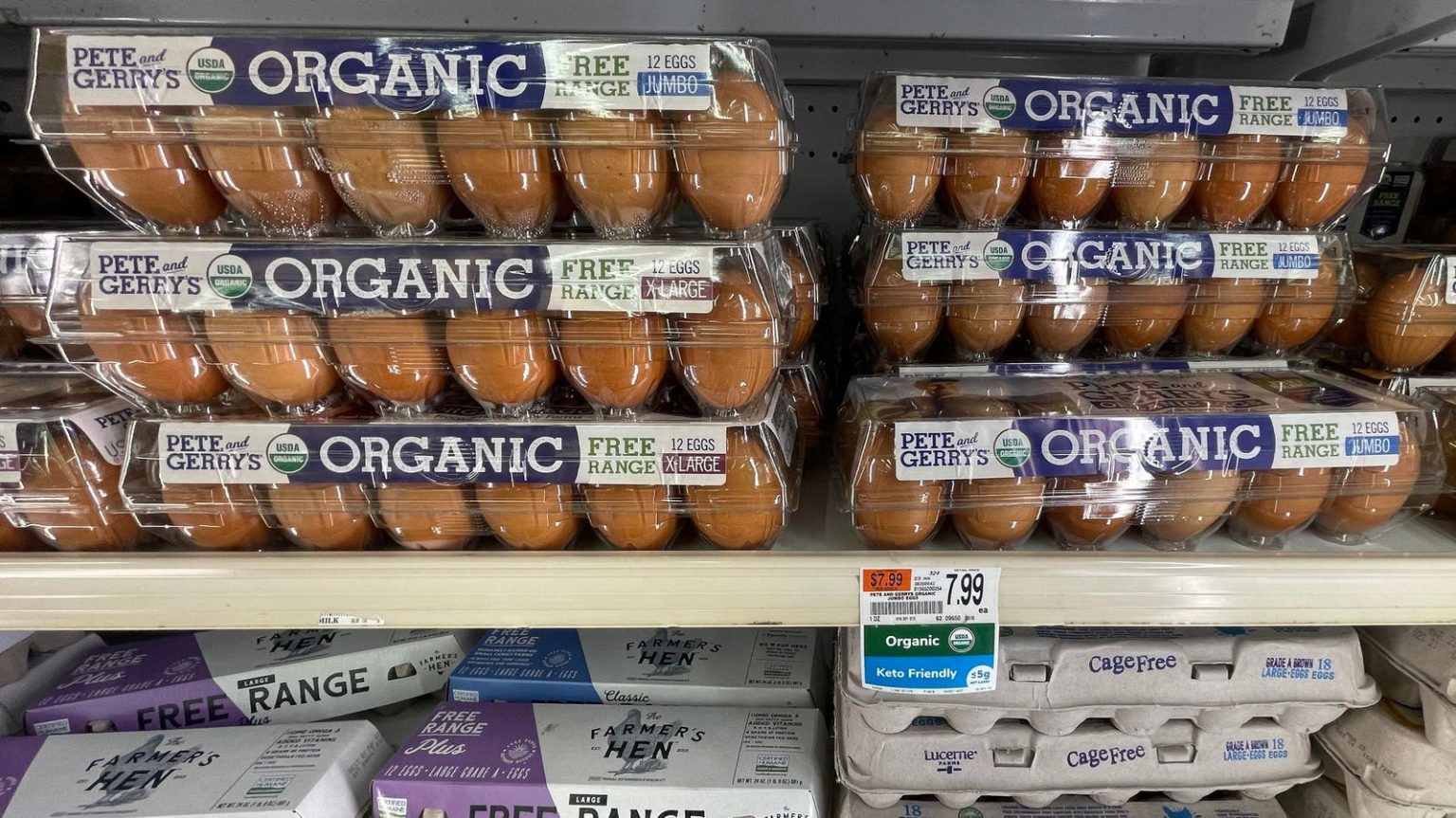I never thought of eggs as a luxury. They were always in the fridge or on the counter if they were from a nearby farm—cracked into cake batter, over easy on sleepy Sunday mornings, or the base for my mom’s egg salad. They were the quiet workhorses of the kitchen. But now, with eggs stolen in bulk, prices soaring to $8 a carton, and constant shortages, I realize something has shifted. Eggs aren’t just eggs anymore. They highlight how everyday foods are becoming more valuable—and more vulnerable.
In the dead of night, thieves in Pennsylvania stole 100,000 organic eggs worth $40,000 from Pete & Gerry’s Organic Eggs, one of the nation’s leading free-range egg producers. The company later acknowledged the incident, stating, ‘Pete & Gerry’s is aware of a recent incident in Franklin County, Pennsylvania, and we are actively working with local law enforcement to investigate.’
It sounds absurd, but it’s part of a much larger trend. According to CargoNet’s 2024 analysis, cargo theft incidents across the U.S. and Canada surged by 27%, with consumable goods like produce and staples among the top targets. The theft of eggs isn’t just about breakfast—it’s about the vulnerabilities in a food system struggling to keep pace with demand.
While it may sound like a plotline from a crime drama, this theft highlights deeper issues in the food industry, from soaring egg prices to the vulnerabilities of our food supply chain.
A Sign of the Times: The Economics Behind the Theft
Eggs have always been a staple of American kitchens, but in recent years, they’ve become commodities of high economic value. Thanks to avian flu outbreaks and supply chain disruptions, egg prices have skyrocketed—doubling in 2022 and remaining high in 2025. And this isn’t an isolated story. CargoNet reported over 3,600 cargo thefts in 2024—a 27% increase from the previous year—with consumable goods like nuts, avocados, and eggs among the top targets. These trends show how food has shifted from a kitchen staple to an economic asset worth stealing.
For shoppers, it’s a troubling thought: if staples like eggs are now valuable enough to steal in bulk, what’s next? For farmers and consumers alike, this heist reminds us of how fragile our food system has become.
This theft isn’t just about stolen breakfast ingredients—it’s about the shifting value of food in an era of inflation, labor shortages, and supply instability. If eggs are now valuable enough to steal in bulk, what does that say about the state of our food system?
When Food Becomes Valuable Enough to Steal
The theft of 100,000 organic eggs in Pennsylvania might sound bizarre, but it’s part of a much bigger pattern. Around the world, thieves aren’t just targeting cash or luxury goods—they’re stealing food—and not just any food, but high-value, hard-to-replace staples.
Over the past decade, we’ve seen:
- The Great Canadian Maple Syrup Heist (2011): Six million pounds of syrup stolen, worth $18 million—one of the largest food thefts in history.
- The Nutella Heist (2013): Thieves took 11,000 pounds of Nutella in Germany, valued at $20,000—because who doesn’t love hazelnut spread?
- California’s Nut Crimewave: Millions of dollars worth of almonds, pistachios, and walnuts stolen by infiltrating distribution networks—exposing weaknesses in food transportation security.
- The Beehive Heists (2024): Nearly 300 beehives, worth tens of thousands of dollars, were stolen in California because without bees, pollination (and food production) collapsed.
These thefts aren’t random. From maple syrup to eggs, these crimes reflect a larger reality–they show how food isn’t just food anymore—it’s an economic asset. As food prices rise and supply chains strain under pressure, what was once ordinary becomes valuable, and what was once reliable becomes precarious.
What This Means for Everyday Consumers
The theft of organic eggs isn’t just a bizarre crime—it tells us something bigger about how our food system is changing.
The Pennsylvania State Police are still investigating, but this heist signals a larger shift in our view of food security. As egg prices remain volatile, the industry may need to rethink how it protects and distributes essential ingredients.
For consumers, this means higher prices and greater uncertainty. If thieves are willing to steal trailer loads of eggs, shoppers may ask what this means for the future of breakfast—or any meal?
For now, Pete & Gerry’s is left with a gaping hole in its inventory—100,000 eggs stolen in a heist that raises bigger questions. When staples like eggs are no longer safe from theft, it’s a sign that our food supply—and even the simple idea of breakfast—may be far more fragile than we ever imagined.
MORE FROM FORBES
Read the full article here





